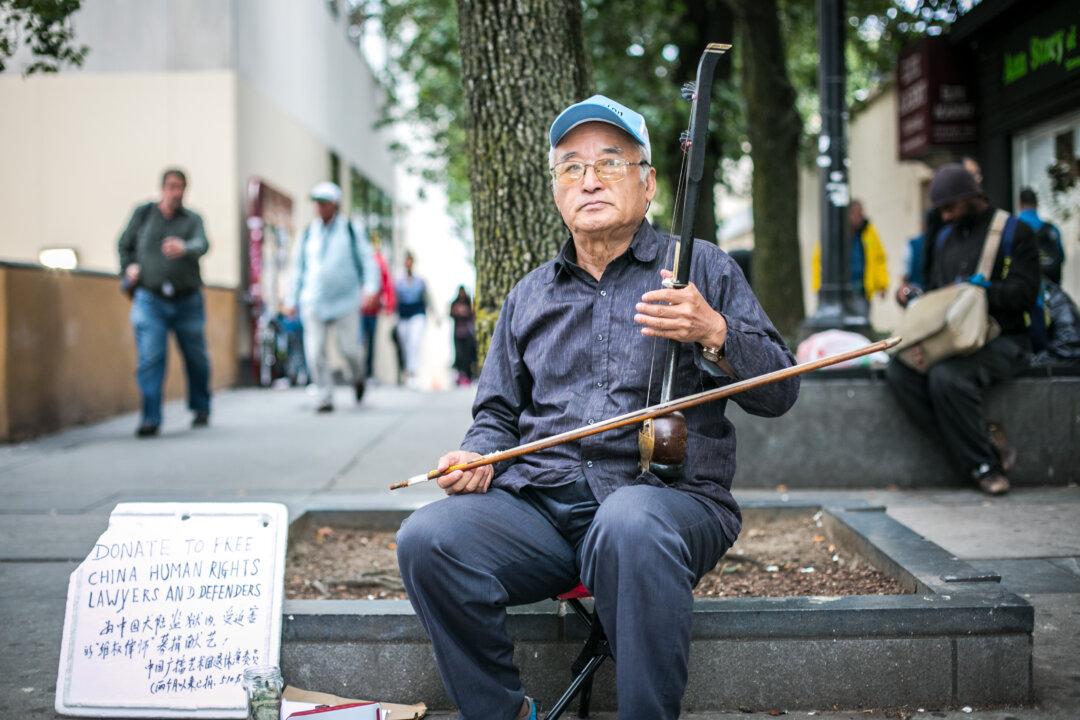NEW YORK—At 72, Xin Xiulu plays the erhu, an ancient two-stringed Chinese instrument, on the streets of Flushing, Queens, collecting crumpled bills from passers-by. It’s a far cry from the position he once enjoyed in China: a professional musician who studied at China’s Central Conservatory of Music and performed lead roles with an international touring group.
But over 25 years ago, Xin’s conscience set him on another path.
He went from respected performer to dissident in 1989, when he witnessed the brutal June 4 massacre in Tiananmen Square—and tried to help the victims.
Then living on the campus of a hospital several miles from the carnage, Xin was not one of the protesters at Tiananmen, in the country’s capital, Beijing. He simply wheeled the dead and wounded into the hospital facilities the day after the killing.
Acting on orders of high-level Chinese Communist Party leaders, the People’s Liberation Army gunned down thousands of protesting students and other civilians in Tiananmen Square and its surroundings.
Within days, Xin was arrested in a broad police sweep for “aiding” what the state media had quickly branded a counterrevolutionary rebellion.
‘Bandit Soldiers’
Raised during the Communist Party’s rise, Xin, like many other young contemporaries, was one of its greatest advocates.
“I used to love the Communist Party and Mao Zedong wholeheartedly,” Xin said. “I was willing to have my body ground into mincemeat if it could be made into an elixir of immortality for Mao.”





